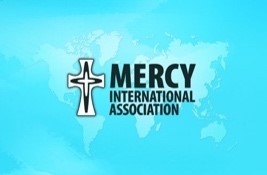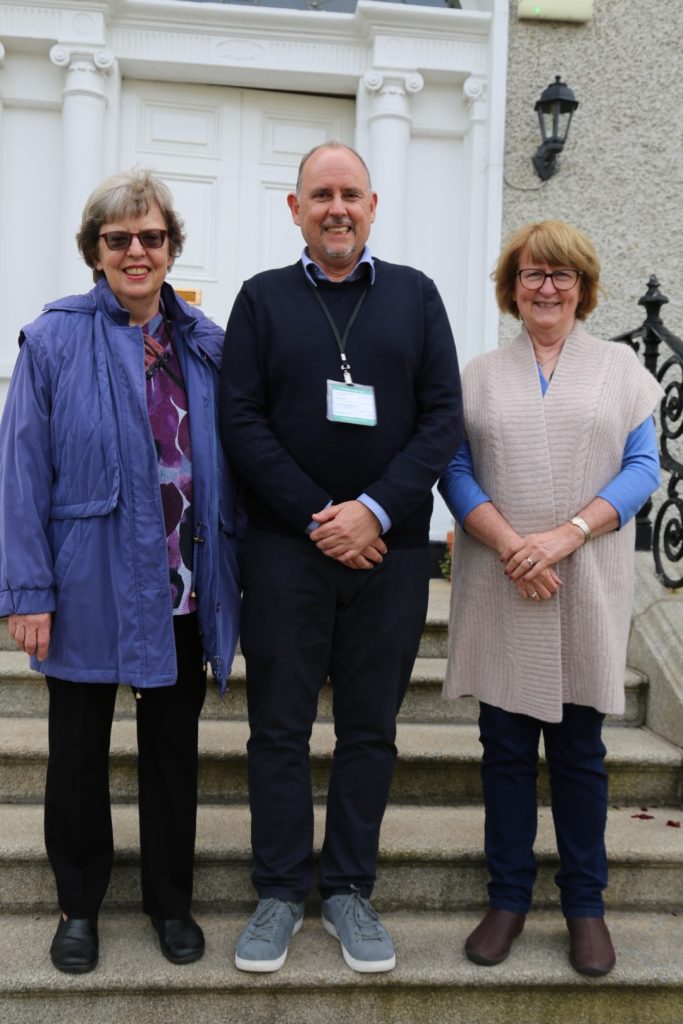Mercy International Association
Since their founding in Dublin in 1831 by Catherine McAuley, Sisters of Mercy have spread across the globe and are now in almost 50 countries and territories. In support of worldwide collaboration, leaders of Sisters of Mercy Congregations founded Mercy International Association (MIA) in 1992. MIA’s purpose “is to inspire Sisters of Mercy and their Associates to incarnate the spirit of Catherine McAuley in ways which are creative and appropriate to the needs of our time and to foster unity of mind and heart among Sisters of Mercy worldwide”. Members of MIA share Catherine’s commitment “to bring mercy to people who are poor, sick and uneducated”.[1]

Mercy Global Action
Advocacy is an important element of the Mercy mission as Sisters of Mercy and their collaborators work for justice and seek to bring about social change. Mercy Global Action (MGA) was established by MIA as its international justice arm – it seeks to bring “the grassroots experience of its Mercy members worldwide to bear on the decision-making and policy agenda of the global community”.[2] In support of its advocacy, MGA has offices in New York and has had Special Consultative Status through the Economic and Social Council of the United Nations since 1998. MGA’s current justice priority issues include water, migration and women’s leadership. MGA supports its priorities through research, justice-based task forces, networks and its leadership and intern programs. The current head of Global Action is Australian Sister of Mercy Dr Angela Reed RSM.

Lay Collaborators
Catherine McAuley sought the assistance of lay colleagues in instigating and furthering her ministries and Sisters of Mercy welcome lay collaborators joining them in the mission of Mercy. In our own case, lay involvement was critical to the flourishing of community service, education and health and aged care ministries founded by the Institute of Sisters of Mercy of Australia and Papua New Guinea and its predecessors. The recent establishment of Mercy Ministry Companions (MMC) has also seen Sisters of Mercy empowering lay colleagues to take Mercy ministries purposefully into the future. Besides MMC, there are three other new lay-lead Church authorities in our region, MercyCare and Mercy Partners in Australia, and Whānau Mercy Ministries in New Zealand. As these new Mercy entities develop, how can they contribute to the MIA’s global platform for advocacy?
My fellow Trustee Director, Carmel Ross, MMC Executive Officer, Anthony Loschiavo and I recently participated in the first MMC Mercy Leadership Program and Dublin Pilgrimage. One part of the journey is the conduct of a ministry-related project following the pilgrimage. Carmel, Anthony and I are undertaking a project to explore the development of a relationship between Mercy Ministry Companions and Mercy Global Action. It will open up opportunities for those in the MMC Ministries to participate in MGA advocacy initiatives and learning opportunities. You will read more about the initiative, which will be a long-term project, and about openings to participate in MGA advocacy in coming editions of Connections. As we commence this project, I am reminded of the words of Catherine McAuley: “A good beginning is of great importance”.
In the first instance, Carmel, Anthony and I invite you to ponder the following:
- Are there ways in which advocacy experience from your ministry or sector could inform the international agenda?
- Would local advocacy be enhanced by members of your ministry participating in an international network or taskforce?
Gabrielle McMullen AM
Trustee Director, Mercy Ministry Companions.

